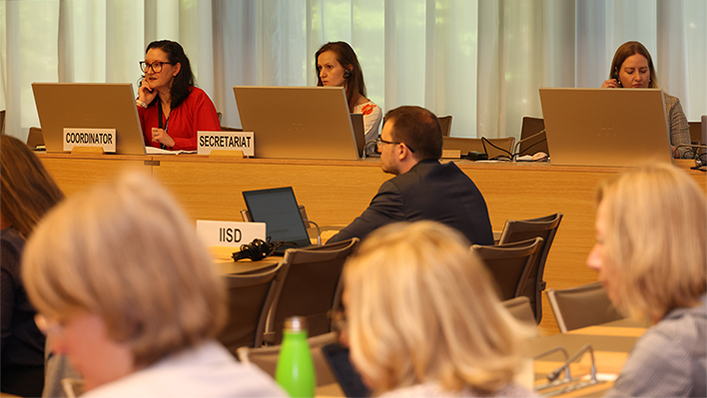
“The MC13 Ministerial Statement and its associated work programme has set out a clear direction for the work of the initiative under its three pillars and related action steps,” Ambassador Clare Kelly of New Zealand, coordinator of the FFSR initiative, said at the meeting. “This will be the focus of our work this year,” she said.
The three pillars are: (i) the use of existing WTO mechanisms to enhance transparency; (ii) sharing experience in the design, review, adjustment and removal of temporary crisis support measures, and development of guidelines to help ensure these remain transparent, targeted and temporary; and (iii) work to identify harmful fossil fuel subsidies from a trade and environment perspective and to build understanding and support for appropriate pathways to reform.
Under the first pillar, members heard updates and exchanged views on how to give effect to the non-exhaustive list of sample questions for use in WTO Trade Policy Reviews, annexed to the MC13 Ministerial Statement, to encourage further transparency on fossil fuel subsidies and their reform. Members furthermore benefited from a briefing from the WTO Secretariat on other WTO mechanisms and information sources on fossil fuel subsidies and reform, with a view to considering ways to encourage increased transparency on the topic. Finally, members also discussed suggestions on ways to broaden input from business and civil society stakeholders.
Under the second pillar, members shared their own experience in shifting towards more targeted support and the phase out of energy crisis measures, as well as providing input into work on an information paper detailing member experience in the design, review, evolution and removal of energy crisis support measures. This is intended to help members develop a set of guidelines that can be used to ensure that any future crisis measures remain transparent, targeted and temporary.
Under the third pillar, expert stakeholders presented analysis on the effects of different categories of fossil fuel subsidies and possible pathways for reform. Several papers and initiatives were presented, including the World Bank ESMAP Energy Subsidy Reform Facility, which offered key insights from recent case studies under the programme.
The next meeting is expected to take place prior to the summer break. More information about the FFSR initiative is available here.
Share
Reach us to explore global export and import deals